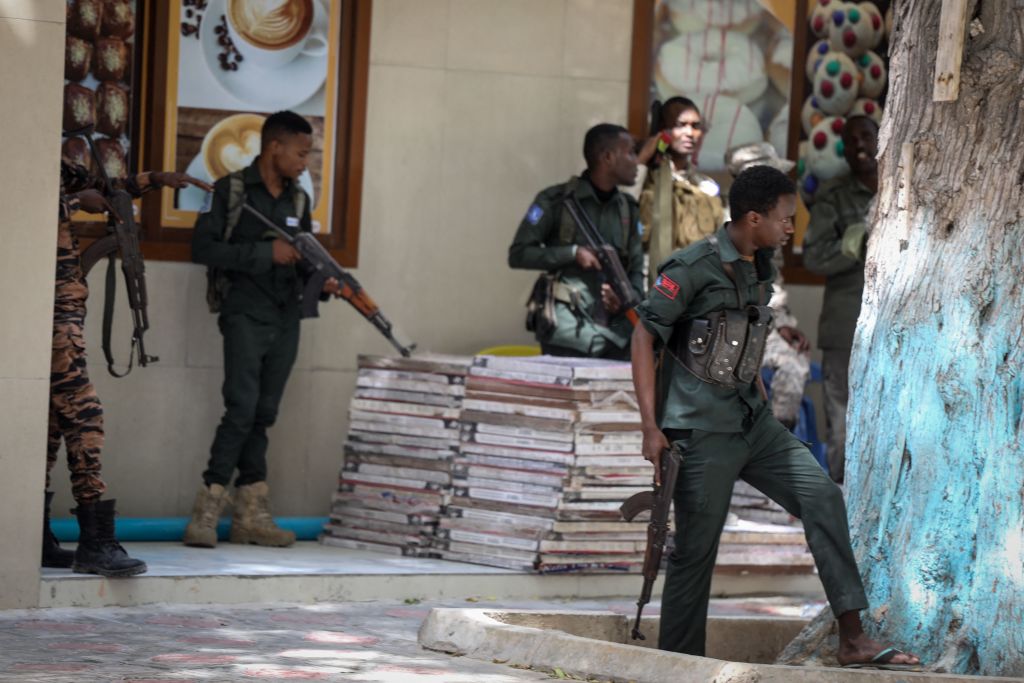ADF STAFF
Although terrorism is a global problem, it is “particularly critical” in many parts of Africa, Mozambican President Filipe Jacinto Nyusi told the United Nations Security Council in late March.
During a meeting on counterterrorism, Nyusi shared the findings of the 2022 Global Terrorism Index, which showed that Sub-Saharan Africa accounted for 48% of global terrorism deaths in 2021. Terrorist networks are surviving and growing in many areas, particularly in the Sahel region, Lake Chad Basin, Great Lakes region and Southern Africa.
“On the context of the African continent, they have generally resorted to trafficking of mineral resources with emphasis on gemstones and illicit drug trafficking for the funding of their activities through money laundering,” Nyusi said. “These financial resources resulting from illicit activities support the seduction and recruitment of the youth in joining their ranks and files within terrorist groups.”
According to the African Centre for the Study & Research on Terrorism, nearly 1,100 terrorist attacks were perpetrated in Africa between January and September 2022, a timeframe that Gabonese Vice President Rose Christiane Raponda described as “particularly bloodthirsty.”
The violence resulted in more than 7,800 deaths and more than 1,770 people wounded, including civilians, security forces and government officials.
“The many challenges that terrorist movements represent to international peace and security require that we remain vigilant but also that we strengthen our cooperation so as to build up the resilience of fragile states in particular in their acquiring technology that [terrorist groups use] to broaden their criminal activities,” Raponda told the Security Council. “This is a fundamental requirement because terrorist groups continue putting down roots in those areas where the authority or capacity of the state is insufficient.”
Raponda called on all Security Council member states to reaffirm their commitment to the Delhi Declaration, which aims to develop guiding principles to counter the use of new and emerging technologies for terrorist purposes. The guidelines will address concerns surrounding the abuse of drones, social media platforms and crowdfunding.
“Terror networks are constantly changing, and they resist the mobilization of the international community,” Raponda said. “This is clearly a cross-border and formidable threat, and no government or organization can combat that on their own. Therefore, a concerted action at the national, regional and global level is key here.”
Rwandan Minister for Foreign Affairs Vincent Biruta argued that traditional peacekeeping missions have not effectively addressed terrorism and violent extremism. Biruta stressed the importance of cooperation in fighting terrorism and added that post-conflict reconstruction must be a priority in affected regions.
“We have learned this from our country’s tragic history,” Biruta said.
U.N. Secretary-General António Guterres acknowledged the threat that terrorist organizations continue to pose.
“No age, no culture, no religion, no nationality, and no region is immune, but the situation in Africa is especially concerning,” Guterres said. “Despair, poverty, hunger, lack of basic services, unemployment and unconstitutional changes in government continue to lay fertile ground for the creeping expansion of terrorist groups to infect new parts of the continent. I am deeply concerned by the gains terrorist groups are making in the Sahel and elsewhere.”
James Kariuki, the United Kingdom’s deputy permanent representative to the U.N., pushed for greater collaboration between the U.N., African Union and regional economic communities. He suggested the use of U.N. sanctions to cut off the funding of terrorist groups while ensuring continued humanitarian assistance in conflict areas.
“We deeply, deeply value our cooperation with regional partners on the al-Shabaab sanctions regime,” Kariuki said. “We have used this to continue tightening the norms on al-Shabaab, including through sponsoring the designation of individuals associated with that group.”

